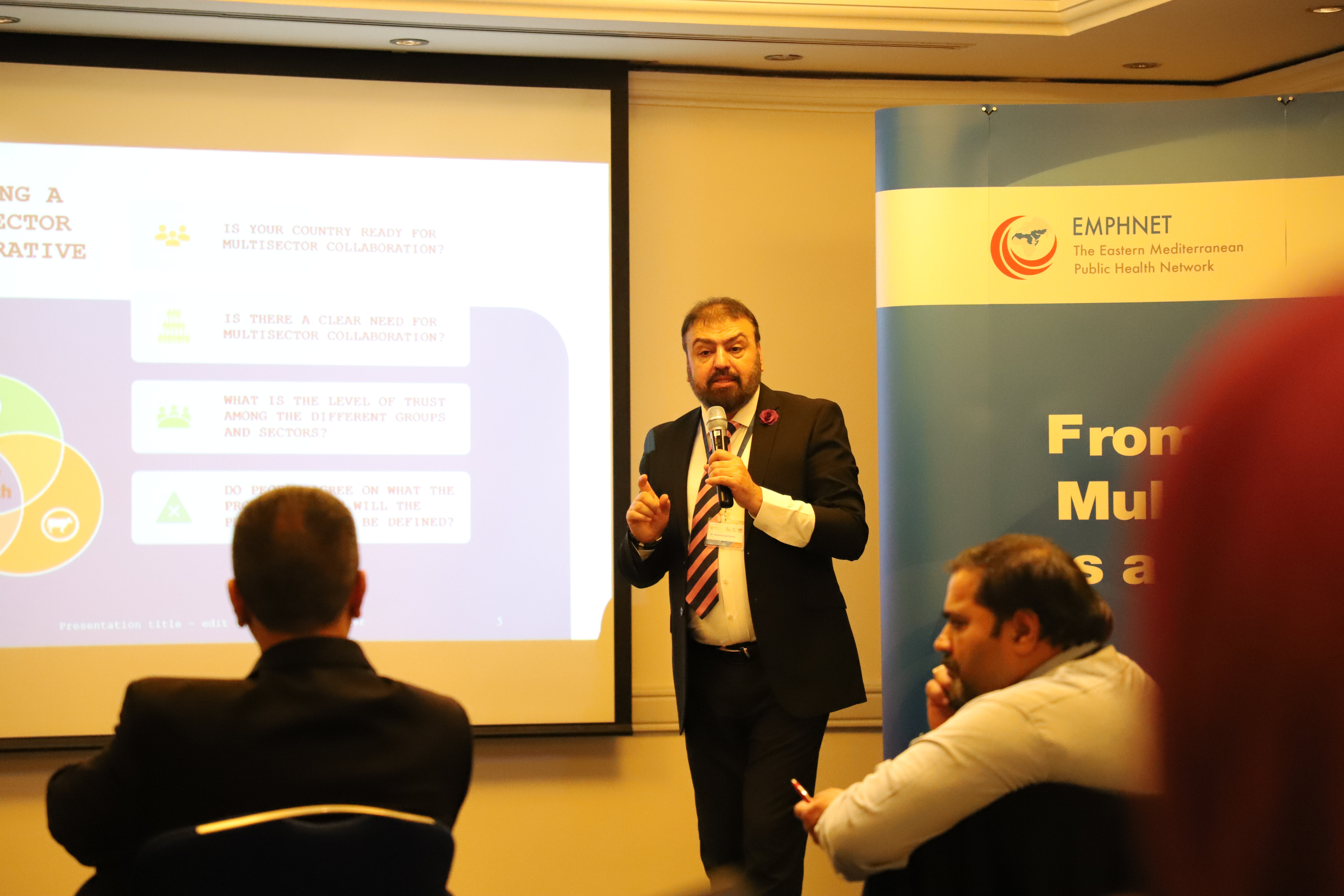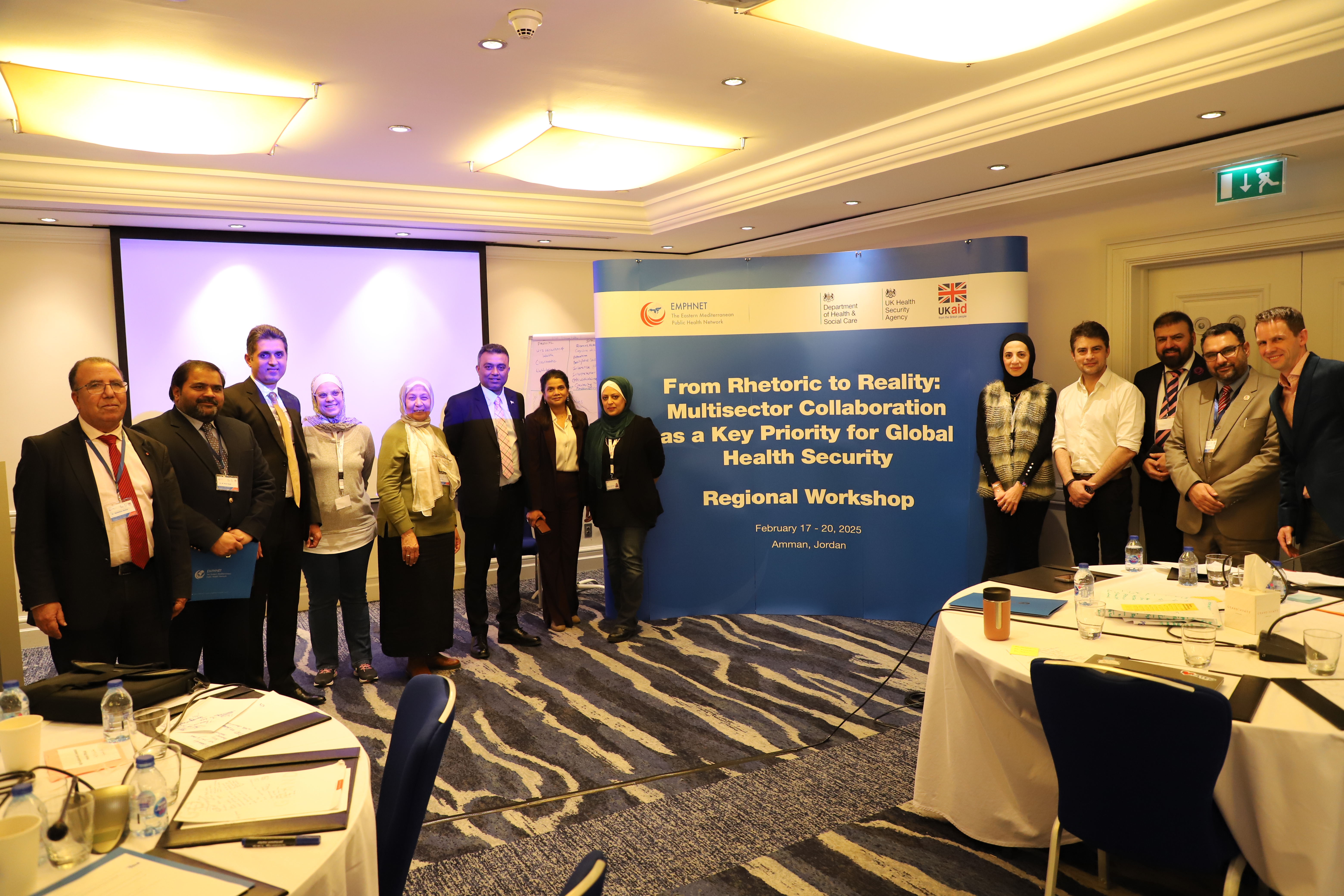
Public health challenges transcend borders and sectors, demanding multisectoral collaboration (MSC) as a core strategy for global health security. In light of the lessons learned from COVID-19, which underscored the urgent need for stronger multisectoral collaboration, the UK Health Security Agency (UKHSA) International Health Regulations Strengthening Project (IHR-SP) in partnership with the Eastern Mediterranean Public Health Network (EMPHNET), brought together stakeholders from Egypt, Morocco, Iraq and Pakistan to transform how different government departments work together during health emergencies.
The four-day event, titled ‘From Rhetoric to Reality: Multisector Collaboration as a Key Priority for Global Health Security’, focussed on creating practical solutions to real-world MSC challenges faced by the Eastern Mediterranean Region (EMR). By tailoring the MSC approach to fit the cultural and operational contexts of EMR, the event paved the way for sustainable collaboration that aligns with International Health Regulations (IHR) requirements.
Workshop highlights
The workshop aimed to improve understanding of MSC principles, identify coordination challenges, and facilitate knowledge exchange. Featuring interactive sessions, UKHSA and EMPHNET expert-led discussions, and practical exercises, the workshop focused on:
- Multisectoral coordination in action – examining real-world applications of One Health, border health, and intersectoral governance
- Stakeholder mapping and coordination mechanisms – identifying the key players involved and assessing current MSC arrangements, gaps and challenges
- Leadership and capacity building – developing leadership skills essential for navigating coordination complexities and ensuring long-term sustainability
- Country experiences and lessons learned – sharing best practices from COVID-19 response efforts and lessons applicable to future preparedness strategies.
Following these sessions, countries worked collaboratively to draft actionable MSC strategies for 2025-2026, ensuring alignment with EMR health priorities.
Driving multisector coordination forward
As a technical leader in global health security, UKHSA IHR-SP played a leading role in facilitating discussions, offering structured strategic approaches and supporting stakeholder engagement. IHR-SP’s Technical Advisors led conversations on sustainable coordination, emphasising the importance of capacity building, policy development, and intersectoral partnerships. Furthermore, UKHSA’s insights helped refine country-specific MSC strategies, ensuring they are both contextually relevant and operationally viable.

The workshop received positive feedback from stakeholders who praised its structured format, interactive methods, and practical approach in the post-workshop assessment. Representatives appreciated the tailored discussions and UKHSA’s contributions, particularly in helping operationalise MSC within national frameworks:
“A lot of material presented was new to me, hearing from other countries experience was very useful and the exercises were good experience”
“Interacting with professionals from the participating countries and listening their experiences of response to the pandemic. All facilitators were very knowledgeable and planning was very practical”
“The workshop made us more clear [on] how to deal with MSC”
A step toward strengthened global health security
Representatives from all four participating nations have committed to further refine their new MSC frameworks, with ongoing support from UKHSA and EMPHNET to translate insights into actionable policies.
Through continued collaboration, capacity-building efforts, and policy refinement, this initiative serves as a cornerstone for strengthening disease surveillance, response systems, and overall resilience across the EMR.

Also By
- First-of-its-kind Community-Based Surveillance Training in Mardan to Boost Pakistan’s Disease Preparedness and response
- Emergency disease surveillance system in action for recurrent floods in Pakistan
- Expanding Sindh’s Integrated Disease Surveillance and Response Network (IDSR) Laboratory Network to private laboratories
Useful Resources
Related Articles
-
UKHSA’s IHR-SP recognised for its pivotal role in One Health in Nigeria at the 3rd Ibadan Public Health Conference 2024
BY IHR -
Supporting Zambia to prepare and respond effectively to mpox
BY ihr -
IHR-SP joint cross-sector collaboration initiative for Nigeria’s One Health next generation leaders
BY Paul Irabor -
Africa CDC PHEM Fellows receive first training on chemical, biological, radiological and nuclear hazards
BY Eyob Getachew Tensaw, Lydia Izon-Cooper, Addisalem G Taye -
Fourth Regional Training of Trainers on Public Health Emergency Operations Centres in Africa
BY IHR
Please Sign in (or Register) to view further.